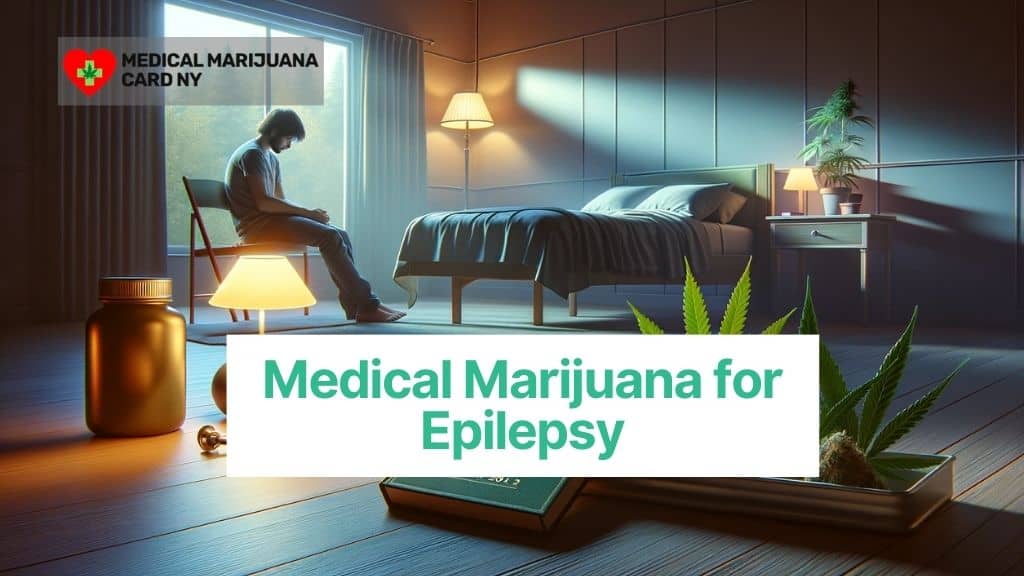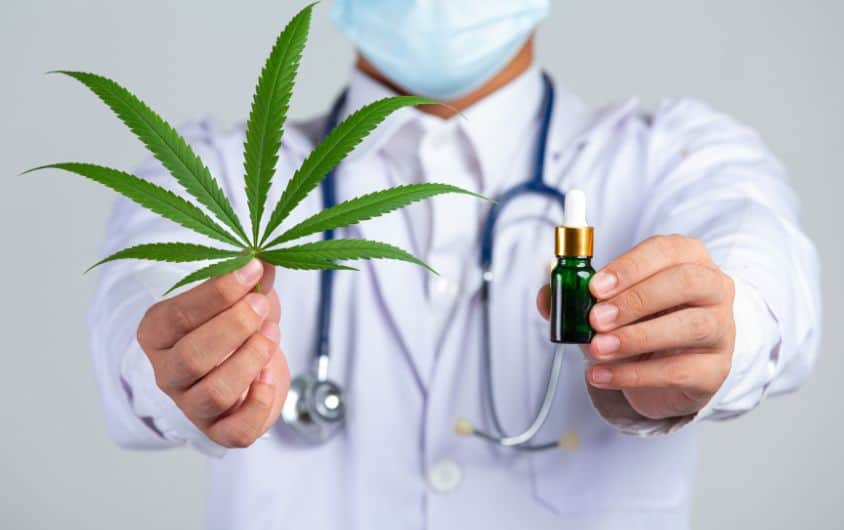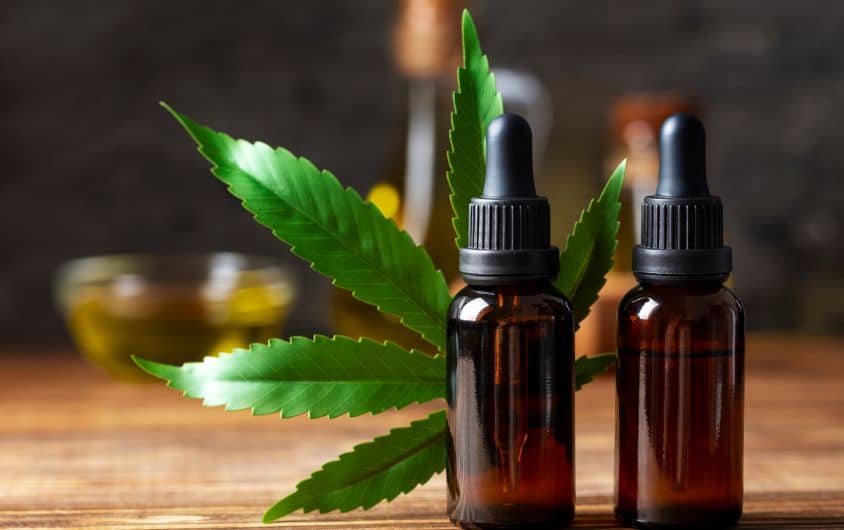Medical Marijuana for Epilepsy has emerged as a significant topic in the medical community, particularly for its potential in managing seizures. This therapy has garnered attention due to its effectiveness in certain cases, especially for individuals with drug-resistant epilepsy and uncontrolled seizures. While not universally suitable for all epilepsy patients, medical marijuana, particularly strains high in Cannabidiol (CBD), has been reported to reduce seizure activity and offer beneficial effects.
Research on medical marijuana, primarily focusing on CBD, has been challenging due to federal regulations and limited access. However, recent studies have shown the benefits of plant-based CBD products in treating specific groups of people with epilepsy who have not responded to traditional therapies. It’s important to note that while medical marijuana shows promise, it’s not a universal solution for all types of epilepsy and should be considered carefully under the guidance of a healthcare provider.
Table of Contents
Toggle- Introduction to Medical Marijuana and Epilepsy
- The Role of Medical Marijuana in Treating Epilepsy
- Medical Marijuana Laws and Regulations in New York
- Medical Marijuana Strains and Epilepsy
- Challenges and Considerations in Using Medical Marijuana for Epilepsy
- Medical Marijuana Recommendations in New York
- Conclusion
Introduction to Medical Marijuana and Epilepsy
What is Medical Marijuana?
Medical marijuana, also known as cannabis, is derived from the Cannabis sativa or Cannabis indica plants. It is utilized for medical purposes and contains various compounds called cannabinoids. The two primary ingredients are Tetrahydrocannabinol (THC), which is responsible for psychoactive effects, and Cannabidiol (CBD), which does not induce a high but has shown effectiveness in reducing seizures in some epilepsy patients.
How Does Epilepsy Affect Individuals?
Epilepsy is a neurological disorder characterized primarily by uncontrolled seizures. It affects millions of individuals worldwide and varies in its manifestation and severity. Despite the availability of numerous antiseizure drugs, a significant portion of people with epilepsy continue to experience seizures.
The Role of Medical Marijuana in Treating Epilepsy
How Can Medical Marijuana Help with Epilepsy?
The therapeutic potential of medical marijuana in epilepsy lies primarily in CBD, a non-psychoactive compound. Studies have shown that CBD can significantly reduce seizure frequency in various forms of epilepsy. Its efficacy is attributed to its interaction with the endocannabinoid system in the brain, which plays a key role in regulating neuronal excitability and seizure susceptibility.
A study published in the journal Epilepsia (available at Wiley Online Library) highlighted the potential of CBD in reducing seizures. This study, focusing on a particular CBD-enriched cannabis extract, observed a reduction in seizure frequency in some patients, underlining CBD’s potential as an adjunctive therapy for epilepsy.
What Are the Scientific Findings on Medical Marijuana and Epilepsy?
The scientific findings on medical marijuana and epilepsy have been increasingly studied and documented over recent years. According to a study published in the journal Epilepsia, there is growing evidence to support the effectiveness of cannabidiol (CBD), a compound found in cannabis, in treating seizures, especially in drug-resistant epilepsy. This study highlights the potential of CBD as a new class of medication for epilepsy. It suggests that CBD is particularly beneficial in reducing seizure frequency in conditions like Dravet syndrome and Lennox-Gastaut syndrome, which are often resistant to traditional antiepileptic drugs.
Another significant contribution to this field comes from a study published in the National Library of Medicine, which delves into the pharmacology and therapeutic targets of CBD. This study underscores CBD’s minimal psychoactive effects, which makes it a more favorable option compared to other cannabinoids like THC. It also highlights the complex pharmacological profile of CBD, involving multiple receptor pathways. The study emphasizes that while the exact mechanisms by which CBD exerts its antiepileptic effects are still under investigation, there is substantial evidence from both animal and human studies demonstrating its efficacy in reducing seizure frequency.
These findings are crucial in understanding the role of medical marijuana, particularly CBD, in the treatment of epilepsy. They provide a foundation for future research and potential clinical application, offering hope for better seizure management in individuals with epilepsy, especially those with forms resistant to conventional treatments.
Medical Marijuana Laws and Regulations in New York
What Are the Legal Aspects of Medical Marijuana in New York?
In New York, the legal framework for medical marijuana underwent significant changes as of March 2023. The previous system of medical marijuana cards was replaced with medical practitioner certifications. These certifications now include a registry ID number, enabling patients to purchase medical cannabis at registered dispensaries in New York State without the need for a separate registry ID card.
Eligible healthcare providers, who are registered to practice in the state and can prescribe controlled substances, are empowered to certify patients for medical cannabis. This certification process is contingent upon the healthcare provider determining that the patient’s condition is debilitating and could benefit from marijuana treatment. The providers must complete a specific course on medical cannabis, ranging from two to four hours, to be eligible to certify patients.
Interestingly, the New York State Office of Cannabis Management (OCM) has removed the list of specific medical conditions that previously qualified patients for medical cannabis access. This shift allows healthcare providers greater discretion in determining whether a patient’s condition warrants the use of medical cannabis.
Who Qualifies for Medical Marijuana in New York?
Qualification for medical marijuana in New York is now primarily at the discretion of certified healthcare providers. Patients seeking certification can consult with healthcare providers, including via telemedicine services. Once a patient is certified for medical cannabis, they are automatically registered with the Medical Cannabis Program, and the certification they receive includes their registry ID number.
It is important to note that patients must be legal residents of New York to participate in the state’s medical cannabis program. The cost of obtaining medical marijuana certification varies and is subject to consultation charges by the healthcare providers, which can range between $150 and $300.
Medical Marijuana Strains and Epilepsy
Which Strains of Medical Marijuana Are Most Effective for Epilepsy?
Regarding the most effective medical marijuana strains for epilepsy, specific strain recommendations are not typically provided by the New York State regulations or by healthcare providers. The effectiveness of a particular strain can vary depending on the individual’s condition and response to treatment. In general, strains high in CBD (Cannabidiol) are considered beneficial for managing epilepsy, as CBD is known for its anticonvulsant properties. However, the exact strain and formulation best suited for an individual patient are usually determined through a consultation with healthcare providers and possibly through trial and response.
Patients and caregivers can consult with pharmacists at medical cannabis dispensaries in New York State, who are on-site to assist in finding the right product for their conditions, checking interactions with other medications, and guiding them on how to use each form of cannabis.
Challenges and Considerations in Using Medical Marijuana for Epilepsy
What Are the Challenges in Using Medical Marijuana for Epilepsy?
Using medical marijuana for epilepsy presents several challenges. First, there is a need for more extensive research. While cannabinoids, like cannabidiol (CBD), have shown promise in reducing seizures in some people with epilepsy, the exact mechanisms and long-term effects are still not fully understood. The research is complicated due to federal regulations and limited access to cannabidiol, leading to financial and time constraints.
Another challenge is finding the right dosage and formulation. Treating epilepsy often requires a careful balance of medication to manage seizures effectively without causing debilitating side effects. This is particularly true for rare, severe forms of childhood-onset epilepsy like Lennox-Gastaut syndrome and Dravet syndrome. The most common side effects reported with CBD use include sleepiness, lethargy, and in some cases, liver abnormalities, especially when used in conjunction with certain other seizure medications.
Why Is There Controversy Surrounding the Use of Medical Marijuana for Epilepsy?
The controversy surrounding the use of medical marijuana for epilepsy mainly stems from the limited scientific evidence and the complex legal status of cannabis. Despite anecdotal reports and some clinical studies suggesting its benefits, there is still a lack of comprehensive data to support its widespread use. This situation is further complicated by the varying legal status of medical marijuana across different jurisdictions, impacting research and access.
Medical Marijuana Recommendations in New York
How Can Patients Obtain a Medical Marijuana Recommendation in New York?
As of March 2023, the process for obtaining medical marijuana in New York has been simplified. Patients no longer need to obtain a medical marijuana card; instead, they only need a certification from a healthcare provider. Any healthcare provider who is qualified to prescribe controlled substances in New York and has completed a required course on medical cannabis can certify patients. This certification automatically registers the patient with the Medical Cannabis Program, eliminating the need for separate registration.
Where Can Patients Find Reliable Sources for Medical Marijuana in New York?
Patients can find reliable sources for medical marijuana at registered dispensaries across New York State. These dispensaries have pharmacists on-site to assist patients in selecting the right product for their condition, checking for interactions with other medications, and instructing on the usage of various cannabis forms. It is essential for patients to consult with these pharmacists or their healthcare providers to ensure they are using medical marijuana safely and effectively.
Conclusion
Medical Marijuana for Epilepsy represents a burgeoning area in therapeutic intervention, offering new possibilities for seizure control, particularly in drug-resistant cases. The evolving legal framework, especially in New York, has made access easier, with a focus on healthcare provider certification rather than state registration.
However, challenges persist, including the need for more comprehensive research, understanding proper dosages, and addressing potential side effects. Despite these hurdles, the use of cannabis, particularly CBD, in treating specific epilepsy syndromes such as Lennox-Gastaut and Dravet, has shown promising results. It’s a field of continuous exploration, with the potential to significantly impact the lives of those living with epilepsy.
Resources
https://www.ncbi.nlm.nih.gov/pmc/articles/PMC4911937/
https://onlinelibrary.wiley.com/doi/full/10.1111/epi.12610
https://link.springer.com/article/10.1007/s11910-015-0586-5
https://www.sciencedirect.com/science/article/abs/pii/S1525505019302227





